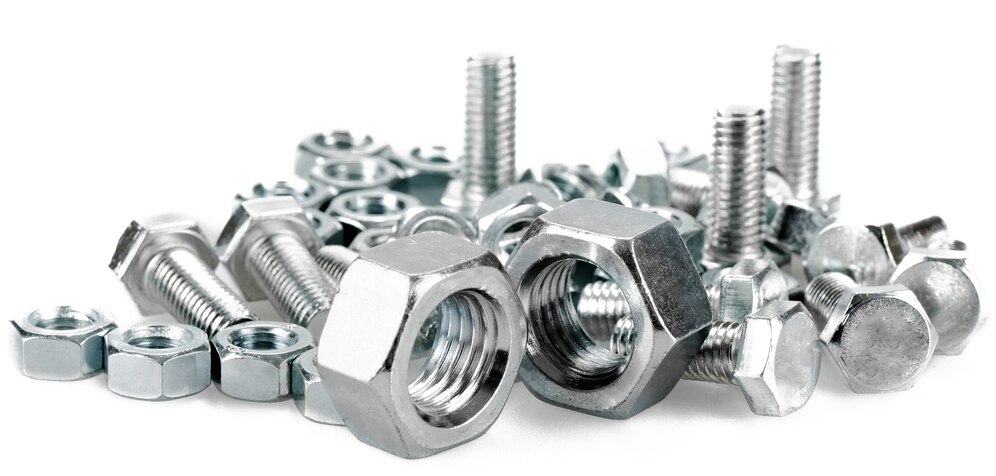Fasteners play a pivotal role in a wide range of industries, from automotive and construction to marine and woodworking. Selecting the right material for your fasteners is essential to ensure durability, performance, and resistance to environmental factors. At Class Pack Machines, we prioritize manufacturing fasteners using top-quality materials tailored to meet your project’s specific needs. Let’s dive into the various materials used in fastener manufacturing and their unique characteristics.
The Importance of Choosing the Right Fastener Material
Selecting the appropriate fastener material goes beyond simply choosing what’s available. Factors such as corrosion resistance, strength, brittleness, and application environment all influence the material choice. By understanding these factors, you can enhance the longevity and performance of your fasteners, ensuring your projects stand the test of time.
Below, we explore some of the most commonly used fastener materials, their properties, and ideal applications.
1. Stainless Steel: The Corrosion-Resistant Champion
Stainless steel is a widely preferred material for fasteners due to its excellent corrosion resistance. This alloy combines low-carbon steel with chromium, which forms a protective layer on the surface, preventing rust and corrosion even in harsh environments.
Key Properties:
- High corrosion resistance
- Long-lasting durability
- Non-magnetic or weakly magnetic depending on the grade
Applications:
- Outdoor structures
- Marine environments
- Food processing equipment
Considerations: While stainless steel offers excellent corrosion resistance, it’s prone to galling—a form of surface damage caused by friction. Additionally, stainless steel fasteners are not as strong as hardened steel options and cannot be heat-treated for increased strength.
2. Silicon Bronze: Ideal for Marine Applications
Silicon bronze is a copper-based alloy that includes tin and a small amount of silicon. It’s particularly valued for its superior corrosion resistance, especially in saltwater environments.
Key Properties:
- Exceptional corrosion resistance
- Attractive copper-like appearance
- High strength and durability
Applications:
- Marine hardware and wooden boat construction
- Decorative woodworking projects
Considerations: Silicon bronze fasteners tend to be more expensive than other materials, making them a premium choice for specialized applications.
3. Brass: A Blend of Elegance and Functionality
Brass is an alloy composed of copper and zinc, offering a unique combination of strength and corrosion resistance. Its aesthetically pleasing appearance makes it a popular choice for decorative applications.
Key Properties:
- Good corrosion resistance
- Electrical conductivity
- Attractive golden appearance
Applications:
- Electrical components
- Decorative woodworking
- Plumbing fixtures
Considerations: Brass fasteners are relatively soft, limiting their use in heavy-duty applications. However, their distinctive appearance makes them ideal for projects where aesthetics matter.
4. Alloy Steel: Strength and Versatility
Alloy steel is essentially carbon steel enhanced with additional elements such as silicon, manganese, and chromium. These elements improve the strength, toughness, and ductility of the material.
Key Properties:
- High strength and durability
- Heat-treatable for increased performance
Applications:
- Automotive components
- Heavy machinery
- Structural applications
Considerations: As alloy steel becomes stronger, it is more susceptible to hydrogen embrittlement, which can reduce its ductility. Proper coating or plating can mitigate this issue.
5. Aluminum: Lightweight and Corrosion-Resistant
Aluminum is a lightweight and corrosion-resistant metal that finds its use in applications where weight reduction is critical. Despite being relatively soft, aluminum can be alloyed with other elements to enhance its strength.
Key Properties:
- Lightweight and easy to work with
- Excellent corrosion resistance
- Non-magnetic
Applications:
- Aerospace and automotive industries
- Electronic enclosures
- Lightweight structures
Considerations: Due to its softness, aluminum is not suitable for high-stress applications. However, the addition of elements such as magnesium, silicon, and zinc can significantly enhance its strength.
Choosing the right fastener material is essential to the success and longevity of your projects. At Class Pack Machines, we specialize in manufacturing fasteners using a variety of high-quality materials, including stainless steel, silicon bronze, brass, alloy steel, and aluminum. Our commitment to quality ensures that you receive fasteners designed to meet the most demanding requirements.
Whether you need fasteners for automotive applications, marine environments, or decorative projects, Class Pack Machines has you covered. Contact us today to learn more about our comprehensive range of fasteners and how we can support your next project.
